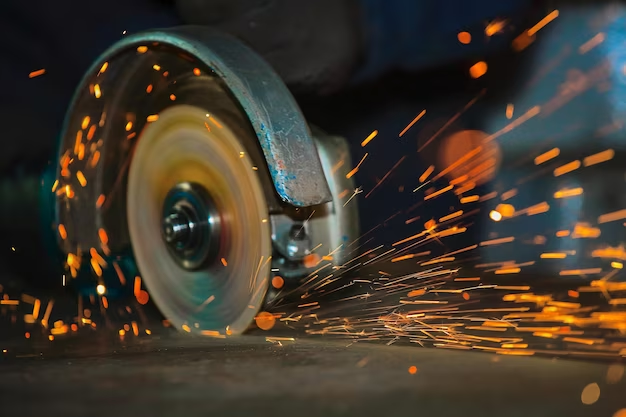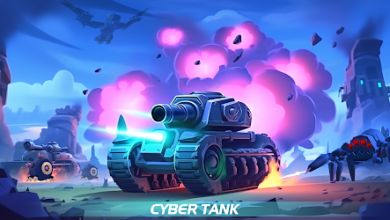Revolutionizing Precision: Exploring the Potential of Hybrid Grinding Wheels

In the ever-evolving landscape of manufacturing and machining, precision is a cornerstone of success. Hybrid grinding wheels have emerged as a cutting-edge technology, offering a new dimension to precision grinding processes. This article delves into the potential of hybrid grinding wheels, exploring their composition, applications, and the transformative impact they bring to the world of precision machining.
Understanding Hybrid Grinding Wheels
Hybrid grinding wheels combine the best of two or more different types of bonds Resin Bond, Metal Bond, etc. along with various processing methods, to create a powerful combination. This “Hybrid” design brings together the best qualities from each to tackle even the most challenging grinding tasks with superior performance. Hybrid wheels are tailor made and manufactured to fit our customers’ specific needs.
Composition of Hybrid Grinding Wheels
The composition of hybrid grinding wheels is a carefully engineered balance between conventional and superabrasive materials. The choice of abrasives and their proportions in the wheel impact its performance characteristics. For example:
- Aluminum Oxide/Silicon Carbide and Diamond Hybrid: This combination is effective for applications where both high material removal rates and fine surface finishes are required. The hardness of diamond complements the durability of aluminum oxide or silicon carbide, resulting in a versatile grinding tool.
- CBN and Conventional Abrasives: Hybrid wheels that incorporate CBN alongside conventional abrasives excel in grinding ferrous materials. The hardness of CBN enhances wheel life, while the conventional abrasives contribute to the overall efficiency of material removal.
Advantages of Hybrid Grinding Wheels
Hybrid grinding wheels offer a range of advantages that make them stand out in precision machining:
- Enhanced Tool Life: The combination of superabrasives with conventional abrasives results in improved wheel life. Superabrasives bring exceptional hardness and wear resistance to the wheel, reducing the need for frequent replacements.
- Versatility: Hybrid wheels are versatile and adaptable to a variety of materials, from hard and brittle to soft and ductile. This versatility makes them suitable for a wide range of machining applications.
- Increased Productivity: The superior cutting efficiency of hybrid wheels translates to increased productivity. Manufacturers can achieve higher material removal rates without compromising on the quality of the finished product.
- Reduced Heat Generation: The combination of conventional and superabrasives helps manage heat more effectively during grinding. This is particularly beneficial for materials that are sensitive to thermal damage, ensuring the integrity of the workpiece.
- Precision Finishing: Hybrid wheels excel in applications that demand precision finishing. The synergy between different abrasives allows for a fine balance between material removal and surface quality.
Applications of Hybrid Grinding Wheels
The versatility of hybrid grinding wheels makes them suitable for a broad spectrum of applications across various industries:
- Aerospace Manufacturing: Hybrid wheels are employed in the production of critical aerospace components, where precision and reliability are paramount.
- Automotive Industry: From engine components to transmission parts, hybrid grinding wheels find applications in the automotive sector, where high precision and efficiency are essential.
- Tool and Die Making: In the tool and die industry, where intricate shapes and tight tolerances are common, hybrid grinding wheels contribute to achieving the desired precision.
- Medical Device Manufacturing: Hybrid wheels are used in the production of medical implants and instruments, ensuring the highest standards of accuracy and surface finish.
- Mold and Die Production: Precision is crucial in mold and die production, and hybrid grinding wheels play a key role in achieving the required surface quality and dimensional accuracy.
Challenges and Considerations
While hybrid grinding wheels offer significant advantages, there are challenges and considerations to be mindful of:
- Cost: The incorporation of superabrasives increases the cost of hybrid wheels compared to conventional ones. However, the extended tool life and improved performance often justify the investment.
- Selection Criteria: Choosing the right hybrid wheel requires a thorough understanding of the specific application, workpiece material, and desired outcomes. Manufacturers must carefully consider the balance between conventional and superabrasive components.
- Dresser Compatibility: Dressing hybrid wheels requires compatible dressers, and the choice of dresser type influences the effectiveness of the dressing process. Diamond dressers are commonly used for hybrid wheels containing superabrasives.
Emerging Technologies in Hybrid Grinding
The field of hybrid grinding wheels is not static; ongoing research and development continue to introduce new technologies and innovations. Some notable trends include:
- Advanced Bonding Systems: Innovations in bonding systems contribute to the overall performance of hybrid wheels. New bonding formulations enhance the wheel’s ability to retain abrasive grains and withstand the forces encountered during grinding.
- Smart Grinding Systems: Integration of smart technologies, such as sensors and monitoring systems, allows real-time tracking of grinding parameters. This enables operators to make informed decisions, optimize processes, and prevent issues like wheel wear or breakage.
- Customized Hybrid Solutions: Manufacturers are increasingly offering customized hybrid grinding wheel solutions tailored to specific applications. This approach ensures that the wheel is optimized for the unique requirements of a given machining task.
- Eco-Friendly Materials: With sustainability gaining prominence, there is a growing emphasis on developing hybrid grinding wheels using eco-friendly materials and manufacturing processes. This aligns with the broader industry trend towards environmentally conscious practices.
Conclusion
Hybrid grinding wheels represent a significant leap forward in the quest for precision in machining. By synergizing the strengths of conventional abrasives with superabrasives, these wheels offer unparalleled versatility, increased tool life, and the ability to achieve precise finishes. As technology continues to advance, and manufacturers push the boundaries of what is possible, the potential of hybrid grinding wheels in revolutionizing precision machining is bound to expand. The marriage of tradition and innovation in the form of hybrid grinding wheels heralds a new era in the pursuit of perfection in manufacturing processes.



